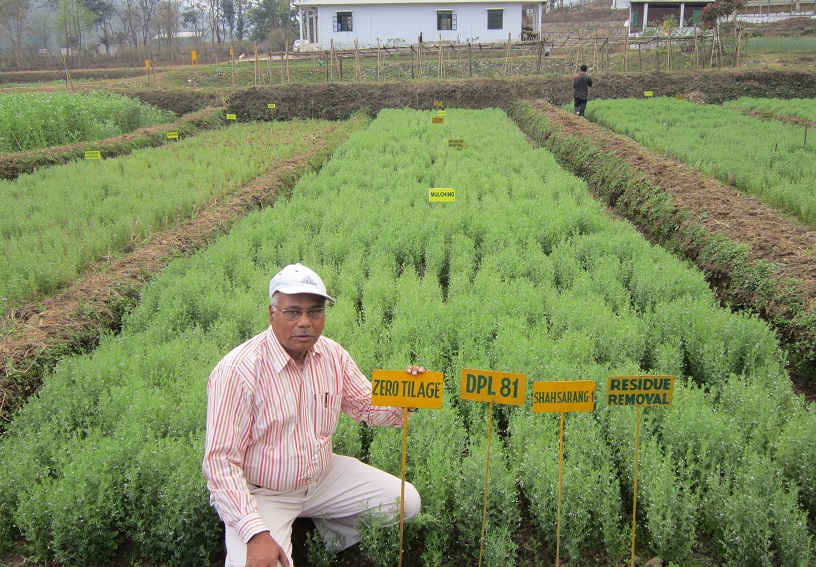
Pulses production in India is failing miserably despite so called emphasis given by the Ministry of Agriculture, Govt. of India through various schemes, Plan after Plan. It’s a pity that India in spite of having unique opportunities to double the Lentil, Green gram and Black gram production in Rice Fallows particularly in the inland coastal districts of Andhra Pradesh, Tamil Nadu, Karnataka, Odisha, West Bengal, and other upland ecosystem in Eastern and North-eastern States besides improving yields in other pulses, the Country is resorted to import Pulses heavily on regular basis!
The unfortunate part, 78% of the total 38.0 lakh hectare area under Pigeon pea known as hardy crop where yield levels varies from 476 kg to 728 kg /ha only. This is happening despite several premier Research Institutions like IARI, IIPR of ICAR, State Agricultural Universities (SAUs) with mandate of Pigeon pea research besides ICRISAT, an International Centre with excellence and having hybrid Pigeon pea released and notified for general cultivation failed to create visible impact so far.
It is not that India lacks improved, climate resilient varieties and hybrids in Pigeon pea. It’s a policy failures in seed system supposed to produce quality certified seeds of improved varieties and hybrids and supply to farmers primarily by the National Level Agencies (NLAs) dealing with seeds and receiving grants directly from the Ministry of Agriculture, Govt. of India. In reality, seed system in India is hijacked by ‘Seed Mafia’ and Country’s seed requirements are largely met by procuring spurious seeds through Tenders. So, how do we expect mitigating shortages in Pulses by improving productivity?
What exactly needed is timely supply of quality seed of improved varieties / hybrids at a reasonable cost; procurement from farmers at a remunerative price, proper storage and finally creating buffer stock on the event of bumper production, thereby avoiding distress sale to mitigate chronic shortages. Ministry of Agriculture need to come out from traditional approach of running Mission after Mission and waste funds but provide support services, particularly critical inputs to pulse-growing farmers who can do wonder and make India self-reliant in Pulses.
Fact remains, farmers do not have the access to genetically pure seeds of recommend, improved varieties. It is an open secret, farmers are being supplied with spurious seeds, mostly purchased from open Mandis and labelled as ‘Certified’ which are freely being procured through Tenders by the NLAs and supplied the under Govt. Schemes! When this is happening with the full knowledge of Ministry of Agriculture and Govt. of India is happy to import Pulses than encouraging their own farmers, who can ensure getting Dal in every plate of 1.3 billion people, essential to keep nation healthy!
Question remains, who will prepare the blue print for intensifying pulses production both in traditional/non-traditional areas taking advent of multiple seasons namely Pre-Rabi, Rabi, Kharif, Summer, Spring by fitting various pulses in the existing cropping systems/sequences; expanding areas to new niches at least for next 3-4 years reasonably adequate to achieve self-sufficiency in Pules and make India free from the clutches of import? (Where imports are not because of compulsion but backed by ill intentions.
Dr Mukti Sadhan Basu is a former director of the National Research Centre for Groundnut, Indian Council of Agricultural Research. He was also International Consultant on Aflatoxin Management, UNIDO and worked in Africa in that capacity. Presently he is Managing Director of SBSF Consultancy.